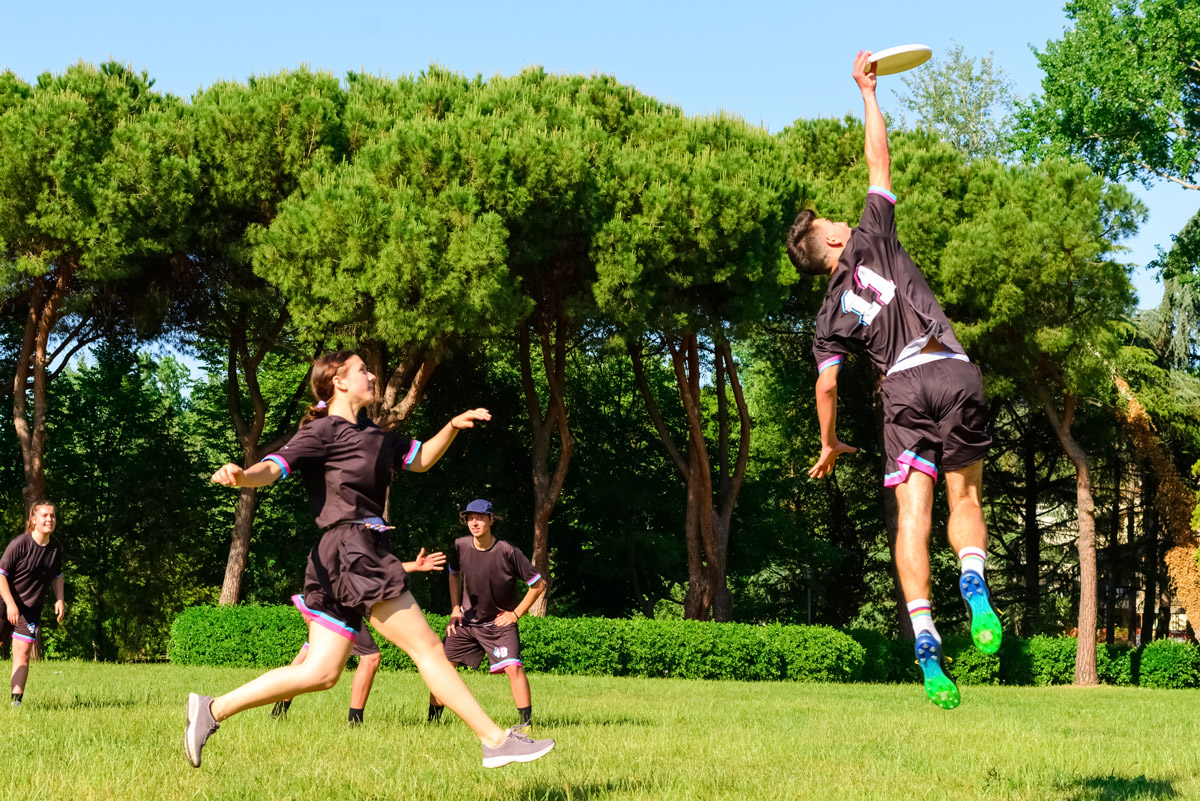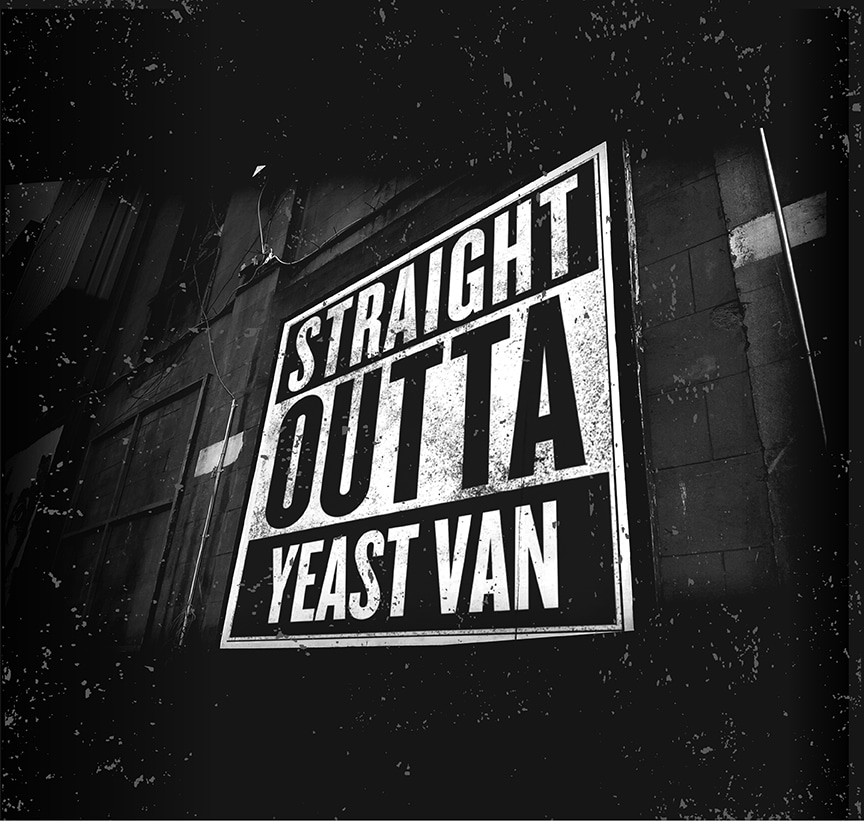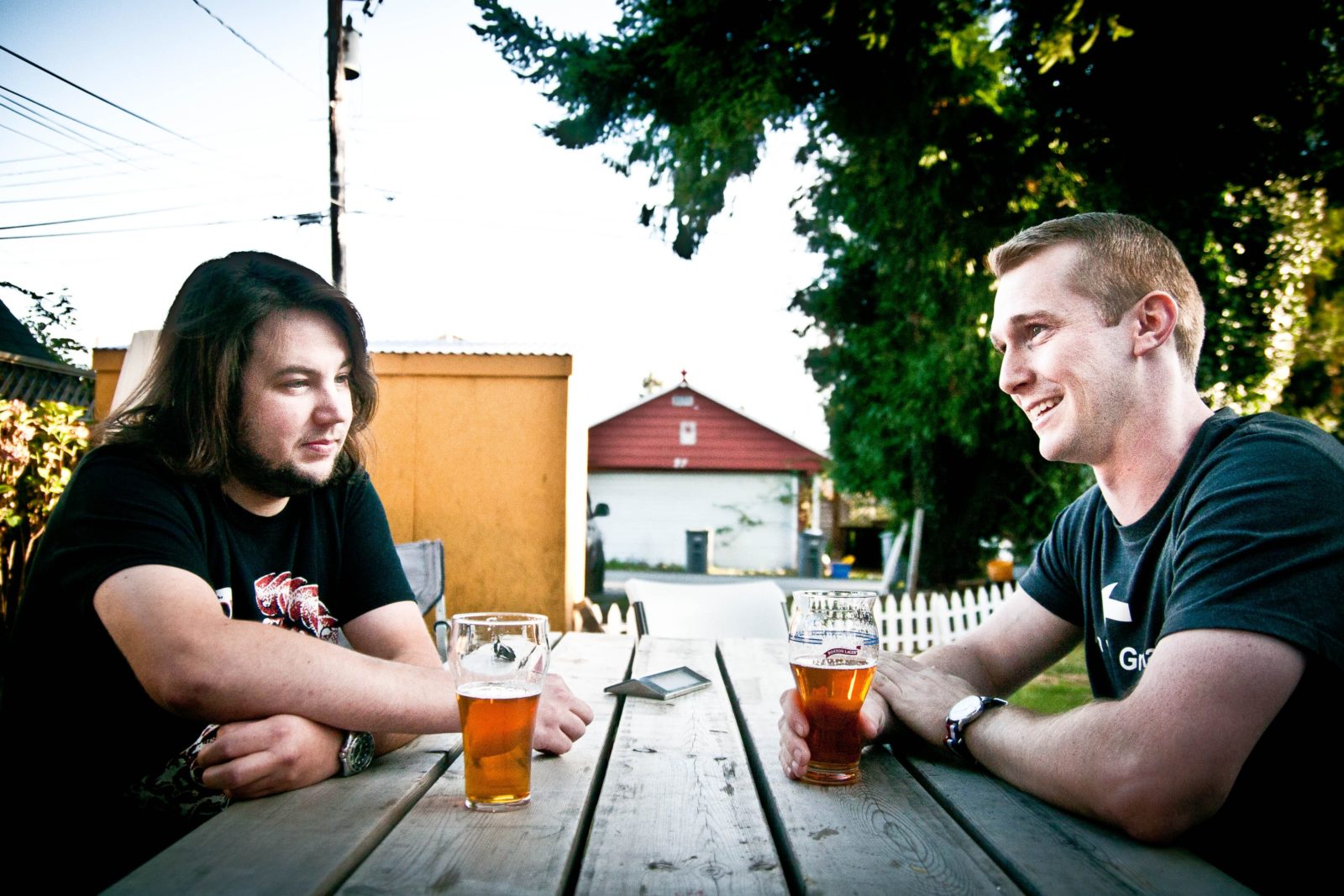
Contrary to worn-out stereotypes of the lazy beer drinker, B.C.’s craft beer consumers often spend their days hiking, dancing, or running. But there’s one sport that seems to really click with B.C.’s craft beer community: Ultimate (a.k.a. Ultimate Frisbee).
Ultimate has been described as a team sport for people who don’t play team sports. While it requires physical skill, it doesn’t operate like a traditional sport. For example, there’s no referee; players follow general principles of fairness rather than a rulebook. This casual yet competitive game evolved in the 1990s through the social networks of university students and young professionals who were looking for something fun and low-pressure. Turning Frisbee (sorry, “disc”) into a competitive game fit the bill.
Most Ultimate players have some type of post-secondary education. However, work and education history don’t really matter: according to Glenn Ulmer, Cicerone and Ultimate fan, an Ultimate team is a group of people who don’t care what you do, how much money you make, or what level you’re at. It’s a low-pressure escape.
Ulmer’s beer expertise is far from unusual in Ultimate circles. From Ultimate’s early days in Vancouver, players were countercultural – just like the nascent craft beer community. At an Ultimate game, says communications consultant Michael Keffer, everyone would show up with Shaftebury or Okanagan Springs rather than Budweiser. In the mid-90s, major beer corporations’ offers of sponsorship deals to Ultimate leagues were rejected in favour of sponsorships from craft breweries instead. The two little guys (Ultimate and craft beer) helped boost one another.
From the early 90s into the early 2000s, craft breweries such as Storm, Russell, Granville Island, R&B, and Shaftebury sponsored Vancouver’s Ultimate teams. Barry Benson of R&B recalls that back then, the sport was growing and brewery employees were out there playing. Not him though. “I’m not that athletic a person and it’s quite an athletic game,” Benson laughs. “I liked watching, and we had several parties at the breweries with the Ultimate teams there.”
Both Marc Roberts, co-owner of Back Country Brewing, and Nick Menzies, GM of Granville Island’s Tap & Barrel, fondly recall heading to R&B before a game with empty jugs that the brewery would fill up with beer (often for free) so they’d have some post-game refreshment. Benson believes that dynamic gave life to Ultimate: “They all compete against each other, but what they look forward to is sitting down after and talking about life and creating relationships. And there’s nothing better to do that with than sitting with a craft beer on a field after playing a game with your friends.”
Craft beer was new, Ultimate was new, and both were grassroots and counterculture. They were shaped by principles of integrity, camaraderie, and spirit. As Aaron Jonckheere of Strange Fellows puts it, “Craft beer was intertwined in the fabric of the Vancouver Ultimate League and Ultimate in general.” They both wanted to push back against faceless corporations, according to all the people I interviewed. Ultimate, I’ve discovered, secretly contributed to the resilience and spirit we see in Vancouver’s craft beer community today.




